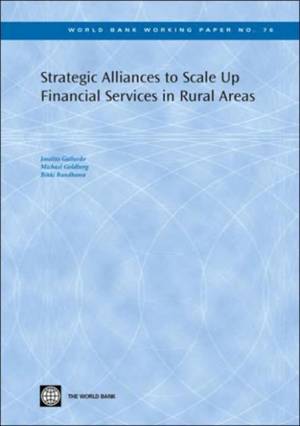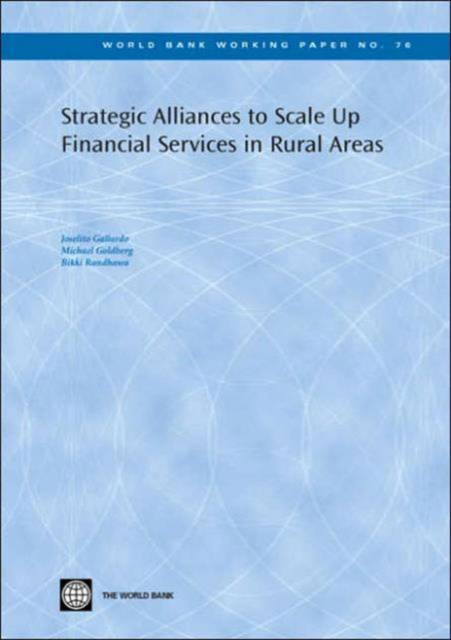
- Afhalen na 1 uur in een winkel met voorraad
- Gratis thuislevering in België vanaf € 30
- Ruim aanbod met 7 miljoen producten
- Afhalen na 1 uur in een winkel met voorraad
- Gratis thuislevering in België vanaf € 30
- Ruim aanbod met 7 miljoen producten
Zoeken
Strategic Alliances to Scale Up Financial Services in Rural Areas
Joselito Gallardo, Bikki Randhawa, Michael Goldberg
Paperback
€ 15,95
+ 31 punten
Omschrijving
Examines the experiences of selected rural finance institutions and their strategic allies or development partners in Guatemala, the Philippines, Ghana and India to draw out the main findings and share the lessons that may be gainfully applied in other country settings.
Specificaties
Betrokkenen
- Auteur(s):
- Uitgeverij:
Inhoud
- Aantal bladzijden:
- 58
Eigenschappen
- Productcode (EAN):
- 9780821366035
- Verschijningsdatum:
- 30/05/2006
- Uitvoering:
- Paperback

Alleen bij Standaard Boekhandel
+ 31 punten op je klantenkaart van Standaard Boekhandel
Beoordelingen
We publiceren alleen reviews die voldoen aan de voorwaarden voor reviews. Bekijk onze voorwaarden voor reviews.











